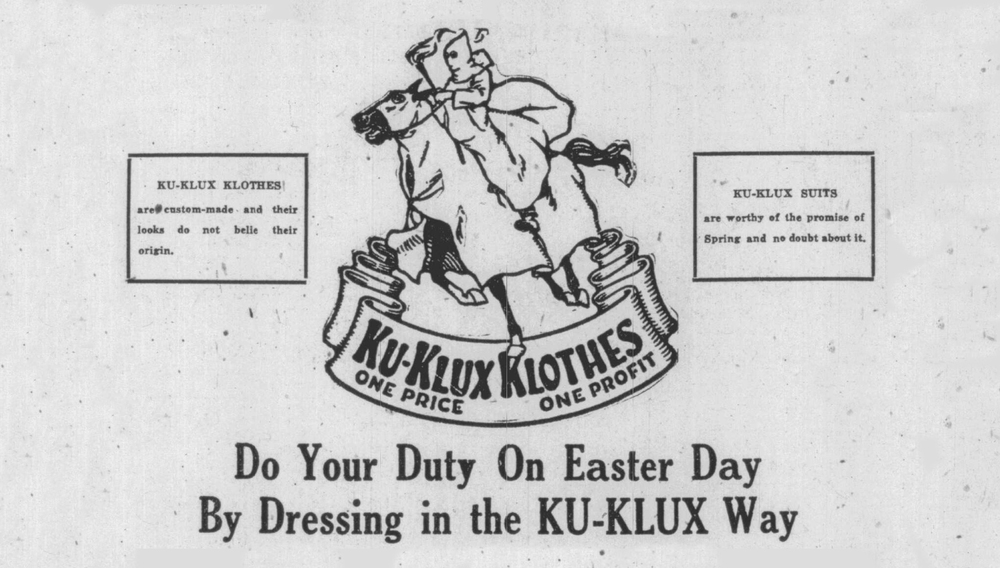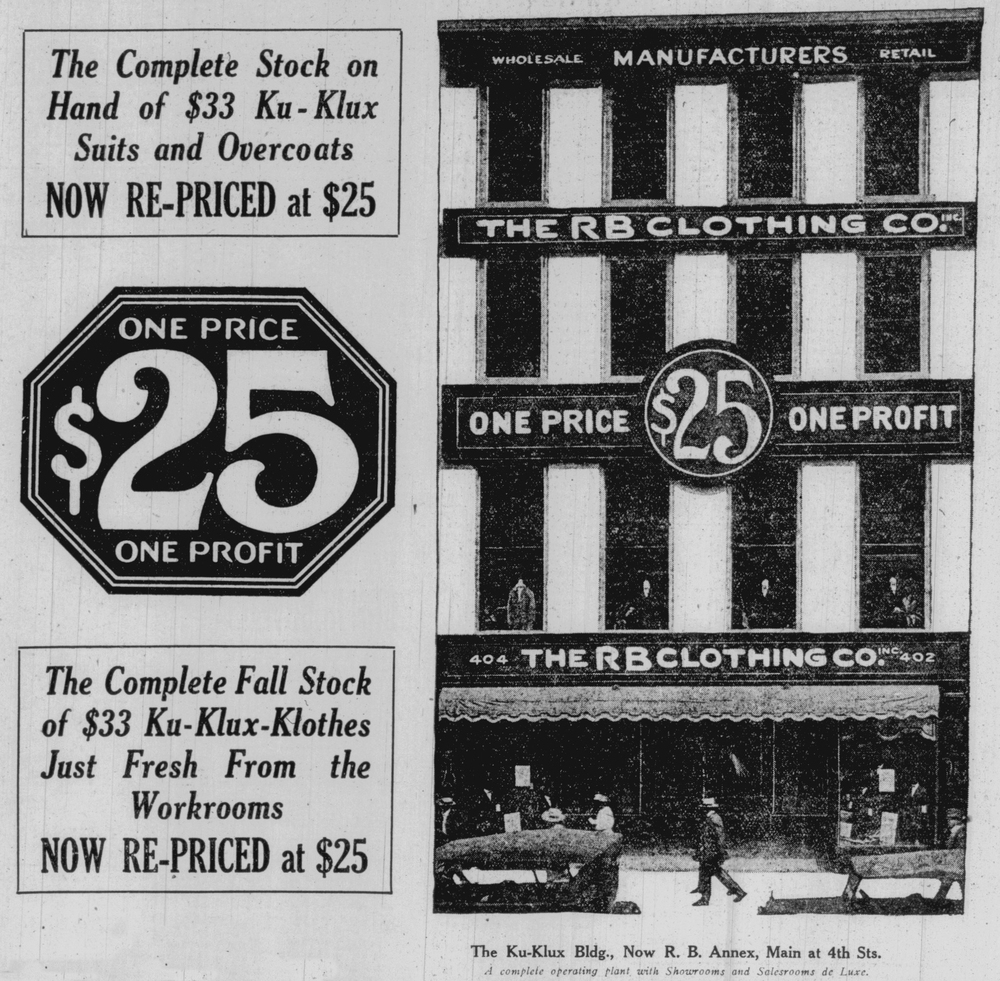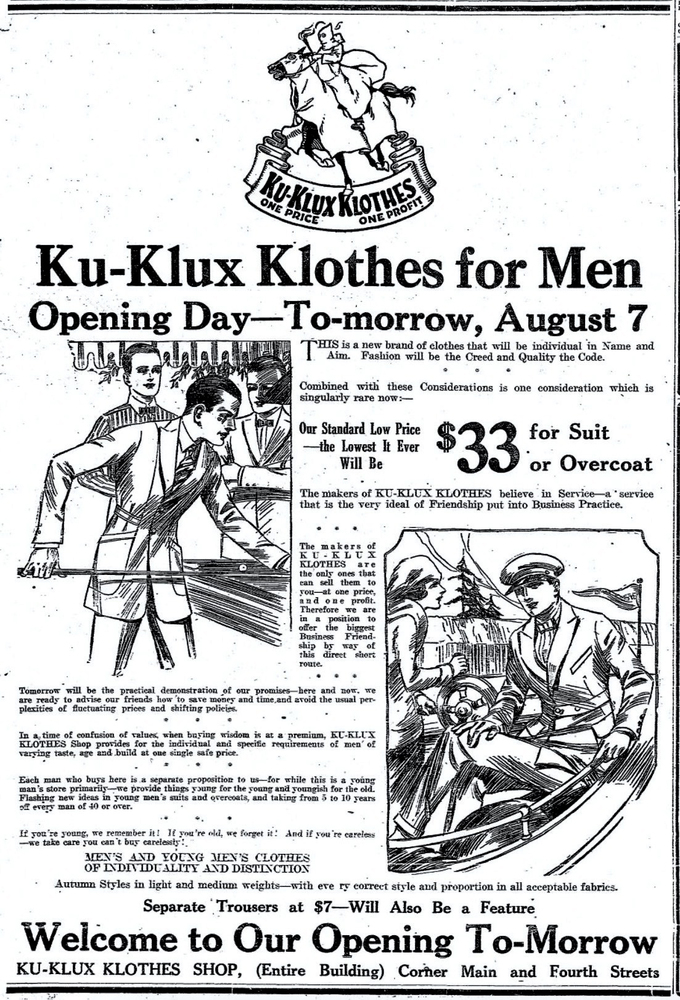Ku-Klux Klothes
Men’s clothing store in Cincinnati, 1920-1921
Ku-Klux Klothes had its grand opening in downtown Cincinnati on August 7, 1920. The shop was at the northeast corner of Main and Fourth Streets. The shop sold ordinary men’s suits in gray, brown, and blue.
In the early 1920’s, the Ku Klux Klan had a heavy presence in Cincinnati. Klan rallies and cross burnings were frequent. Cincinnati Post journalist Alfred Segal, writing in 1956, noted that “The Ku Klux Klan had its dens all around town then. … During that insanity, a clothing store could feel secure in advertising itself as Ku Klux shop and prosper thereby.”
Advertisements for Ku Klux Klothes showed dapper young white men playing billiards, sailing, or standing in front of a mirror. Each suit was sold for a flat price of $33.00.
The shop’s manager was James M. Moore, born in Kentucky around 1873. Moore said that if anyone was curious about the shop’s name, he would give them a free pamphlet explaining his reasons.
Ku-Klux Klothes occupied the entire building at 402 Main, which Moore referred to as the “Ku-Klux building.” (The building, along with adjoining ones, has been replaced by a newer structure.)
James M. Moore would have considered himself to be “100% American.” During the First World War, Moore had worked for a detective agency, investigating ethnic Germans who might harbor anti-American sentiments. In 1918, Moore planted a listening device inside a grandfather clock in a German-owned shoe shop in Covington, Kentucky. Moore listened to conversations inside the shop and made notes.
On the basis of Moore’s notes, the shop owner, Charles Bernard Schoberg, was arrested, along with several other people. Schoberg was a German immigrant in his sixties who had come to the US at the age of five. On the stand, Schoberg described himself as a “loyal American.” Moore accused Schoberg of making some vaguely Anti-American statements. Schoberg had previously made public statements in support of the war against Germany, but on the basis of these private conversations, Schoberg was convicted and jailed under the Espionage and Sedition Acts.
Two years after the Schoberg case, James M. Moore opened Ku-Klux Klothes. The shop operated under that name for a little more than a year, until it was bought out by the larger Raab Brothers Tailoring Company. James M. Moore stayed on as manager until his death from natural causes in 1930.


